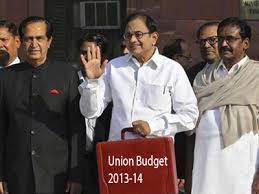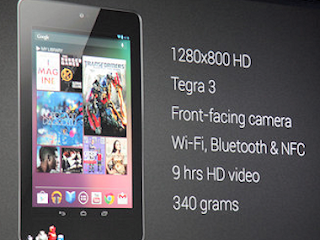In India the Legal Profession and the Law Studies are regulated and governed by the “Bar Council of India” in terms of the “Indian Advocates Act-1961”.
At present, Traditional Universities, Law Universities and Law Schools in India are offering and granting the following Law Degrees:
- Bachelor of Laws / LL.B. - The most common law degree of a 3 years’ duration by Indian universities and Law Universities and Law Schools with a standard LL.B. curriculum with exposure to BAR subjects.
- Integrated Under-Graduate degrees of 5 years’ duration - B.A. LL.B., B.Sc. LL.B., BBA. LLB., B.Com. LL.B.- mostly by Autonomous Law Universities and Schools
- Master of Laws/ LL.M. of 1 or 2 years duration - The most common Post-Graduate Degree in Law
- Master of Business Law
- Doctor of Philosophy / Ph.D. in Law
- Integrated MBL-LLM – A 3 years Double - Degree integrated course with specialisation in Business Law.
The Eligibility Qualifications for Law Studies in India:
For 3 years’ Degrees in Law:
Bachelor’s Degree in any Discipline
For 5 years’ Integrated Degrees in Law:
A Pass in Class XII From a recognized Board of Education in India
Law Degrees can be obtained by any one of the following modes of education:- Regular Colleges/Courses
- Correspondence Courses/Distant Education and
- Online- Courses
The following is a list of National Law Universities Approved by the Bar Council of India:- National Law School of India University, Bangalore,Karnataka
Prof. Venkata Rao,
The Director,
National Law School of India University,
P.O. Bag 7201, Nagarbhavi,
Bangalore – 560 072,
Karnataka, India.
Phones:
+91 80 2321 3160
+91 80 2316 0532
+91 80 2316 0533
+91 80 2316 0535
Fax:
+91 80 23160534
+91 80 23217858
Website:
www.nls.ac.in
Dr. V.Nagraj,
Registrar.
Email: registrar@nls.ac.in
Phone : 080-2316053
Mobile : 09242442876
- The West Bengal National University of Juridical Sciences, Kolkata, West Bengal
Prof. Dr. M.P. Singh,
Vice Chancellor,
NUJS Bhavan (Dr. Ambedkar Bhavan),
12, Block – LB, Sector – III,
Salt Lake City,
Kolkata – 700 098,
West Bengal, India.
Phones:+91 33 23351855/+91 33 23350511/+91 33 23350500/+91 33 23357379/+91 33 23350534
Fax:+91 33 23357422
Website:www.nujs.edu
Director:033 – 23350510 (Direct)
- National Law University, Bhopal, Madhya Pradesh
Dr. Shiv Shankar Singh,
Director,
National Law Institute University,
Kerwa Dam Road,
Bhopal – 462 044,
Madhya Pradesh, India.
Phone:+91 755 2696965 (Director)
Fax:+91 755 2696717 (Registrar)
PBX:+91 755 2696705
Email:nliu@sancharnet.in
Website:www.nliu.com
• National Law University, Jodhpur,Rajasthan
Mr. Justice N. N. Mathur,
Vice Chancellor,
National Law University,
Administrative Block, New Campus,
J. N. V. University, Pali Road,
Jodhpur – 342 005,
Rajasthan, India.
Phones:+91 291 2577530/+91 291 2577526/+91 291 5121594
Fax:+91 291 2577540
Website:www.nlujodhpur.nic.in
• NALSAR University of Law, Hyderabad, Andhrapradesh
Prof. Veer Singh,
Vice Chancellor,
NALSAR University of Law,
3-4-761, Barkatpura,
Hyderabad – 500 027,
Andhra Pradesh,India.
Phones:+91 8418 245159/+91 40 27567960/+91 40 27567955/+91 8418 245155
Fax:+91 40 27567310/+91 8418 245161
Website:www.nalsarlawuniv.org
• Gujarat National Law University, Gandhinagar, Gujarat
Mr. Bimal N. Patel,
Director,
Gujarat National Law University,
E-4, GIDC Electronics Estate,
“Old NIFT Building”,
Sector – 26,
Gandhinagar – 382 028,
Gujarat,India.
Mobile:+919426507432
Phones:+91 79 23287157/+91 79 23287158/+91 79 23243296
Fax:+91 79 23287156
Email:contact@gnlu.org.in
Website:www.gnlu.org.in
• Hidayatullah National Law University, Raipur, Chhattisgarh
Prof. M.K. Srivastava,
Vice Chancellor,
Hidayatullah National Law University,
New Campus, Village Uperwara,
Tahsil Abhanpur,
Raipur – 491 001,
Chhattisgarh, India.
Phone:+91 771 3057603/+91 771 3057604
Fax:+91 771 30557666
Website:www.hnlu.ac.in
Emails: vc@hnlu.ac.in/registrar@hnlu.ac.in
• National University of Advanced Legal Studies, Kochi, Kerala
Dr. N. K. Jayakumar,
Vice Chancellor,
National University of Advanced Legal Studies,
Kaloor,
Kochi – 682 017,
Kerala, India.
Phone:+91 484 2337363
Fax:+91 484 2337857
Email:nuals@asianetindia.com
Website:www.nuals.ac.in
• Ram Manohar Lohia National Law University, Lucknow, Uttar Pradesh
Prof. Balraj Chauhan,
Director,
Doctor Ram Manohar Lohiya,
National Law University,
Sector D-1-L.D.A,
Kanpur Road Scheme,
Near Power House Intersection,
Lucknow – 226 012,
Uttar Pradesh, India.
Phones:+91 522 425902/+91 522 425903/+91 522 425904
Fax:+91 522 2422841
• Rajiv Gandhi National University of Law, Patiala, Punjab
Prof. G. I. S. Sandhu,
Registrar-cum-Director,
The Rajiv Gandhi National University of Law,
Mohindra Kothi,
The Mall,
Patiala – 147 001,
Punjab, India.
Phone:+91 175 2304188
Fax:+91 175 2304189
• Chanakya National Law University, Patna, Bihar
Shri A. Lakhsminath,
Vice Chancellor,
Chanakya National Law University,
A.N. Sinha Institute of Social Studies Campus,
Gandhi Maidan,
Patna – 800 001
Bihar, India.
Phone:+91 612 6450242
Fax:+91 612 2205920
• National Law University, Delhi, Delhi
Prof. Dr. Ranbir Singh,
Vice Chancellor,
National Law University, Delhi,
Sector – 14, Dwarka,
New Delhi – 110 078,
India.
Mobiles:+919711332269/+919717996351
Modes of Admissions To Law Courses:
The admissions to LLB and LLM Courses in most of the autonomous law schools in India are based on performance in a Common Law Admission Test / CLAT.
The admission in Law Colleges of Traditional Universities are done on the basis of an admission test to the constituent law college or a common admission test for its affiliated colleges.
Some traditional universities and affiliated colleges admit students into law courses on the basis of merit in the preceding examination.
Admission to Jindal Global Law School is done through the LSAT examination conducted by Law School Admission Council, USA conducted by Pearson VUE, through its affiliate in India.
The following is a list of "State Bar Councils" in India:
1. ANDHRAPRADESH:
Sri A.Narasimha Reddy,Chairman,
Bar Council Of Andhra Pradesh
3-4-875/2,Barkatpura,Hyderabad (Andhra Pradesh)
Mobile No.: 09989567567
Phone No's: 040-24528772 / 27568089
Email:Anreddy_Advocate@Yahoo.Co.In2. ASSAM:
Shri Dharma Ranjan Gogoi,Chairman,
Bar Council Of Assam & Etc.
Byelane No. 9, R.G.B. Road,Guwahati
– 24 Assam
Mobile : 09435015523
3. BIHAR:
Shri Akhouri Mangla Charan Shrivastava,Chairman,
Bar Council Of Bihar
Mohalla-Gaurakshini Sasaram
Distt. Rahtas – 821115,Patna, Bihar
Phones: 0612-2504125
(O)/Phone: 094314-10500 (R)
Mobile : 094310-28199
4. CHATTISGARH
Shri Shailender Dubey,Chairman,
Bar Council Of Chhattisgarh
1-Shivyatan Hari Krishna Colony,
Tar Bahar, Bilaspur – 495 001.,Chhattisgarh
Phone: 07752-324506
Mobile : 09827184655
E-Mail:
Dubeyshailender53&Yahoo.Com
5. DELHI
Mr. R.S. Goswami, Advocate,Chairman
Bar Conuncil Of Delhi,
A-217, Prashant Vihar, Rohini, Delhi- 110085
A-2, Rose Apartments, Sector-14, Rohini, Delhi-110085
Phones: 011-27556434/ 27556007
Mobile : 098111-75951
E-Mail : goswamiandassociates@yahoo.co.in
6. GUJARAT
Shri Dilip K Patel,Chairman,
Bar Council Of Gujarat
“Suyog”, Nr. Lodhawad Police Chawky,
S.V.P. Road, Rajkot -Gujarat
Mobile:093741-04441
Phone(R): 0281-2921279/ 2231601 (O)
7. HIMACHAL PRADESH:
Shri R. K. Bawa,Advocate General,Chairman,
Bar Council Of Himachal Pradesh
High Court Complex,Ravenswood
Shimla – 171001 (Himachal Pradesh)
Phone: 0177-2657455
Mobile : 09816023110
8.JHARKHAND:
Shri Rajiv Ranjan, Advocate,Chairman,
Jharkhand State Bar Council
60-D, Road No. 1, Ashok Nagar,
Ranchi – 834002,Jharkhand
Phone.: 0651-2241857
Mobile : 094311-02532
Email: rajivd60@yahoo.co.in,
rajivd60@gmail.com9. KARNATAKA:
Shri Muniyappa,Chairman,
Bar Council Of Karnataka
No. 115, CMH Road,
Laxmipurram, Ulsoor,
Bangalore,Karnataka
Phone: 080-22484875, 25309857
Mobile : 09844185200
10. KERALA:
Shri Sreedharan Nair C, Advocate,Chairman,
Bar Council Of Kerala
Neethi, Manjeri P.O.,Malappuram – 676 121
Mobile : 09847015696
11.MADHYA PRADESH:
Shri Shivendra Upadhyay,Chairman,
Bar Council Of Madhya Pradesh
309, Narendra Nagar,Rewa Madhya Pradesh
Phone: 07662–250638
Mobile : 94251 84703
E.Mail:
bar_council_mp@yahoo.in12. MAHARASHTRA & GOA:
Shri Motisingh Ghanshyamdas Mohta,Chairman,
Bar Council Of Maharashtra & Goa
Near Shivaji Park,Taluk /District.- Akola – 444001
Phone: 0724-2438683
Mobile : 09823043763 / 09422938600
E.Mail:hemant111983@gmail.com13 ORISSA:
Shri Gopal Krushna Mohanty,Chairman,
Bar Council Of Orissa
Plot No. 1053//D,Sector Vi, Markat Nagar
Bidanasi, Cuttack, Orissa
Phones: 0671 – 2508489
(Chamber)/0671 – 2508453 (O)/0671 – 2363525 (R)
FAX: 0671 – 2508453
Mobile : 09861092615
14 PUNJAB & HARYANA:
Mr.Minderjeet Yadav,Chairman,
Bar Council Of Punjab & Haryana ,
# 523-F, GH-2, Shikhar Appartments
Sector 5, Mansa Devi Complex,Panchkula
Phone: 0172-2556158
Mobiles : 098146-39181/
094666-96555
E.Mail:minderjeetyadav@yahoo.in
15 RAJASTHAN:
Shri Sanjay Sharma,Chairman,
Bar Council Of Rajasthan
1, Gopalpura Gaon, Gopalpura Byepass,
Near Triveni Nagar, Choraha,Jaipur
Phone: 0141 – 2761762
Mobile : 098290-56176
E-Mail :chairman@barcouncilofrajasthan.org16 TAMILNADU:
Shri D. Selvam, Chairman,
Bar Council Of Tamil Nadu,
No. 3, Raaj Avenue, Kuppam Road,
Kaveri Nagar, Kottivakkam,
Chennai – 600 041,Tamil Nadu
Mobiles : 09444010403 / 9962560403
Email:Sel_68@yahoo.com17 UTTAR PRADESH:
Shri Imran Mabood Khan,Chairman,
Bar Council Of Uttar Pradesh,
3, Ponappa Road, New Cantt,
Allahabad, Uttar Pradesh
Phone: 0532 –
2420522(R)
Mobile : 094152-18689,
096163-45764
18. UTTARKHAND:
Shri Prithvi Raj Chauhan,Chairman,
Bar Council Of Uttarakhand,
Flat No. 201, I.B.M. Tower,Laxmi Road,
Dehradun, Uttarakhand
Phone No.: 0135-3295683
Mobiles : 094120-54326,
099271-24512
E.Mail:info@barcouncilofuttarakhand.org19. WEST BENGAL:
Shri Ansar Mondal , Advocate,Chairman,
Bar Council of West Bengal
Address:-Kustia Housing Estate
Block 1/C Flat No. 5,Kolkata-700 039,West Bengal
Mobile : 09339865117
Email:barcouncilwestbengal@gmail.com
For More Details of Universities/Colleges in Various States in India and for more details on Legal Education In India Visit the Websites of the above various State Bar Councilsand/or the National Bar Council of India:The Bar Council of India






























































































































